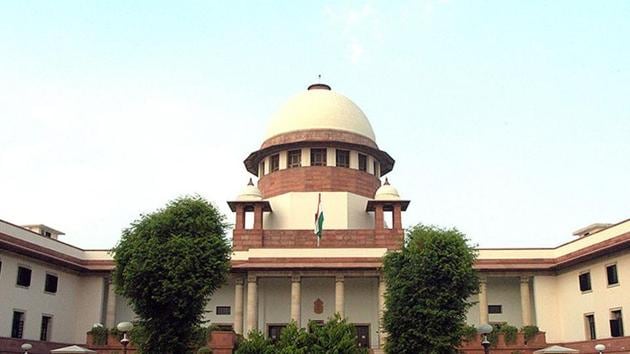Victim can engage lawyer in criminal trial, but not for arguments: SC
A bench of justices MM Shanthanagoudar and Deepak Gupta delivered the judgement while upholding a Calcutta high court order dismissing an application filed in a murder case wherein the wife of a deceased man sought permission for her counsel to cross-question witnesses after the public prosecutor.
The Supreme Court ruled on Wednesday that a victim can engage a lawyer to represent him or her in a criminal trial, but the lawyer wouldn’t have the right to examine a witness or advance arguments in court.

A bench of justices MM Shanthanagoudar and Deepak Gupta delivered the judgement while upholding a Calcutta high court order dismissing an application filed in a murder case wherein the wife of a deceased man sought permission for her counsel to cross-question witnesses after the public prosecutor (lawyer for the police).
The bench said a victim’s counsel has a limited role in a criminal trial. A private lawyer can highlight issues of importance to the prosecutor and in case the police counsel fails to pay heed to the suggestions, can suggest a question to the court, but not pose it directly to a witness, the court held.
“For instance, if the victim’s counsel finds that the public prosecutor has not examined a witness properly and not incorporated his suggestions either, he may bring certain questions to the notice of the court. If the judge finds merit in them, he may take action accordingly by invoking his powers (under the criminal procedure code or Indian Evidence Act),” the bench said,
Underlining the position a public prosecutor has in the criminal justice system, the bench noted that he is not just a representative of the state but also the aggrieved person. “Though he is appointed by the government, he is not a servant of the government or the investigating agency. He is an officer of the court and his primary duty is to assist the court in arriving at the truth by putting forth all the relevant material on behalf of the prosecution,” the bench held.
As a prosecutor, he is required to discharge his duties fairly to the investigating agencies, as well as to the accused. “This means that in instances where he finds material indicating that the accused legitimately deserves a benefit during the trial, he must not conceal it. The space carved out for the public prosecutor is clearly that of an independent officer who secures the cause of justice and fair play in a criminal trial,” the court said.
The plea to confer on a victim’s lawyer the same powers as those of a prosecutor was not accepted by the court. It was argued that the role of a victim’s counsel should not be limited to filing of written arguments as provided with respect to pleaders engaged by private parties.
“From a reading of these provisions, it is clear that a public prosecutor is entrusted with the responsibility of conducting the prosecution of a case…there is no bar on the victim engaging a private counsel to assist the prosecution, subject to the permission of the court,” the court held.






